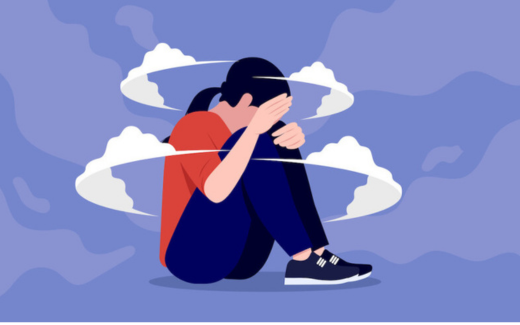Self Sabotage and Depression: The Hidden Battle Inside
What Is Self Sabotage and Depression?
Self sabotage and depression can slowly destroy a person’s life without them being aware that anything is wrong. It’s when someone prevents them self from feeling happy, healthy, or peaceful. They may wish for love but push people away. They might not even like you for it. They might want to be better, but they give up before they’ve even started trying. This is not laziness. This is deep pain inside.Others are all smiles outwardly but are fractured inside. They continue to make decisions that harm them. Then they feel worse. This creates a cycle. The farther they fall, the more difficult they are to raise again.Self sabotage and depression are very real and very serious. But a lot of people don’t talk about it. They are ashamed, guilty or confused. This article can help unravel what’s going on, why it’s happening and how to regain hope.

Common Symptoms of Self Sabotage and Depression
You see often when people are in self sabotage and depression they don’t know they are doing the wrong things. They may simply feel stuck, sad or tired constantly. Here are common signs:
- Phrases like ” I’m not good enough” or “I’ll only screw it up”
- Beginning but never ending
- Isolating oneself or rejecting loved ones
- Feel like nothing is ever going to change
- Top personality traits that can keep you from getting good shut-eye Sleeping too much or not at all
- Eating too little or too much
- Tiredness on resting
- Being mad at yourself for no reason
- No interest left in what you loved
It can be expressed in the body, as well. Some experience headaches, body aches or tightness in the chest daily. Their body’s crying out for help.

What Causes Self Sabotage and Depression?
It’s a fact, the roots of self sabotage and depression run deep. People don’t generally just wake up this way. It usually grows over time. Some common causes include:
Childhood Pain
If someone grew up in the presence of yelling, rejection or fear, for example, they may feel that they don’t deserve good things. This preference continues into adulthood. Even when they get good things, they drive them away.
Fear of Failing
Some are afraid to try, because they are afraid to fail. It’s safer not to try at all. But this fear stops growth. Eventually, they start to feel like they’re at a standstill.
Past Mistakes
People who have done wrong in the past may feel guilty. They won’t admit to wanting and they won’t ask; they feel undeserving of peace or love. So they are in a punishment, even if they don’t intend to be.
Toxic Relationships
There’s nothing more soul-crushing than always being around people who make you feel down about yourself. Then, as time goes by, they become your soundtrack. You start questioning yourself and feeling small.
Mental Health Conditions
Someone might be grappling with anxiety or trauma or some other deep emotional wound. All of these can trigger self-sabotage and depression, no matter how hard the person tries to heal.
How Self Sabotage and Depression Feed Each Other
Self sabotage and depression are two hands clasping each other. One makes the other worse. “If you are depressed, you can’t be depressed, because you already have one foot out. Then they don’t try and their life becomes a great deal harder. This failure makes them feel more depressed, and so on.And the same goes for self sabotage. They might want to grow, but their minds think, “Don’t bother.” So they give up. And then they hate themselves for quitting. It is a painful cycle that’s difficult to break without help.

Real-Life Examples of Self Sabotage and Depression
Examples from real life, a few of which are as follows:
Maya wants to be a nurse. But every time she applies to school, she is too late. She says shes lazy, but underneath it, she’s afraid she won’t be smart enough.
Jamal’s finally met somebody who loves him. But he’s out there picking fights and pushing them away. Afterwards, he cries and says, “They were too good for me anyway.”
Lena founded a company. But the bigger it gets, she stops answering emails. She says, “I’m just tired.” But inside, she believes that she doesn’t deserve to be successful.
These stories are common. Many suffer the same silent war inside.
How to Stop the Cycle of Self Sabotage and Depression
You can heal. But healing is not something that can be rushed or forced. It means recognizing your pain and treating it with the care it deserves.
Talk to Someone You Trust
Expressing your pain allows you to look at it. A friend, a mentor or a professional therapist can help you disrupt toxic patterns. Talking is not a sign of weakness. It makes you brave.
Catch Your Thoughts Early
And when you hear that voice say, “I’m going to mess this up,” stop. Ask yourself: “Is that actually true?” Your thoughts lie to you when you’re in pain.
Start Small
You don’t have to solve everything right away. Do one good thing for yourself every day. Drink water. Take a short walk. Write something good about yourself.
Use Professional Support
Go see a therapist, who can help you pull them up from the basement, identifying and connecting the dots on those deep patterns. Occupational Therapy for Anxiety can also instruct in daily skills to decrease stress and establish strength gradually.
Set Boundaries
Say no to things or people that are a drain on you. This is a place the healing can happen. Not everything has to be explained. Your peace matters.
Useful Recovery Tools and Techniques
Journaling
Describe your emotions without labeling them. This is useful for expelling heavy emotions and learning more about yourself.
Mindfulness
Be present. Feel your breath. Observe your thoughts without engaging them. This helps you stay grounded.
Affirmations That Are Honest
Skip the fake happy quotes. Consider honest ones instead, like, “I’m learning to take care of myself,” or “I’m doing the best I can today.”
Support Groups
You’re not alone. There are other people who feel the same way. Group healing can provide solace, so that we can restore our strength and hope.
Things to Avoid When You’re Struggling
- Don’t measure yourself against others. Healing is not a race.
- Don’t play at things being fine. Be honest with yourself.
- Don’t isolate yourself. Reach out when you feel low.
- Not every voice in your head can be trusted. Some emotions arise from pain, not fact.
What Recovery Looks Like Over Time
Recovering from self sabotage and depression is not a linear journey. Some days will feel light. Others will feel dark. But keep going and you will grow. Even small steps matter.
You’ll begin to:
- Notice your triggers
- Say kinder words to yourself
- Feel proud of small wins
- Trust your own heart again
- Desire for peace more than perfection
Conclusion: You Deserve Peace
Self sabotage and depression do not define who you are. They are pieces of your story, not the entirety of it. You are not broken. You are becoming.This pain can become power. And this battle can become your strength. You just have to keep choosing yourself, even if it hurts.There is help. There is hope. And yes there is healing.



